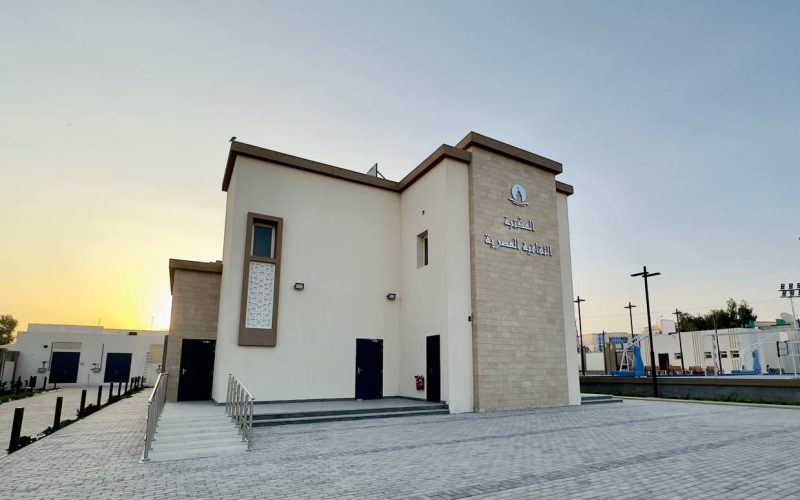Somaliland Shuts Down Egyptian Cultural Library in Hargeisa Amid Regional Tensions
The self-declared Republic of Somaliland has announced the permanent closure of the Egyptian Cultural Library in its capital, Hargeisa.
The Ministry of Foreign Affairs of Somaliland made the announcement via its official X (formerly Twitter) account, stating that the decision to close the library was made due to security concerns.
Furthermore, the ministry ordered the library’s staff to leave Hargeisa within 72 hours.
According to the ministry’s statement, the closure is linked to broader geopolitical issues in the region.
Somaliland’s Foreign Minister, Essa Kayd Mohamud, reportedly briefed diplomats from various countries based in Hargeisa on the decision, citing potential security risks posed by Egypt’s increasing military involvement in neighboring Somalia.
The foreign minister also used the opportunity to update diplomats on the progress of a strategic port agreement between Somaliland and Ethiopia.
The agreement, which centers on the development and use of Somaliland’s Berbera Port, has reached its final stages, with an implementation agreement expected to be signed soon.
The deal is seen as a critical step in bolstering trade routes for Ethiopia, a landlocked country, and enhancing Somaliland’s economic standing.
However, Minister Essa Kayd expressed serious concerns about the growing military presence of Egypt in Somalia, warning that the deployment of Egyptian forces in the region could trigger a proxy war involving neighboring countries.
He noted that the Egyptian military’s entry into Somalia raises the risk of escalating regional tensions, particularly in the Horn of Africa, where relations between Ethiopia and Egypt have long been fraught.
Escalating Diplomatic Strains
Relations between Ethiopia and Somalia have become increasingly strained since Ethiopia and Somaliland signed the port agreement in January 2024.
Somalia has vehemently opposed the deal, arguing that it infringes on its sovereignty.
In response, Somalia took the matter to international bodies, including the United Nations Security Council, the African Union, and the Intergovernmental Authority on Development (IGAD), calling for dialogue to resolve the dispute.
These institutions urged both countries to negotiate and settle their differences diplomatically.
Amid the fallout from the port agreement, Somalia has forged new military alliances, particularly with Egypt and Turkey.
Following the agreement between Somaliland and Ethiopia, Somalia signed military cooperation deals with Egypt, which has reportedly involved sending military personnel and equipment to Somalia.
These actions have heightened concerns in Addis Ababa, as Ethiopia views Egypt’s growing influence in Somalia as a potential threat to its security and stability.
Proxy War Concerns
Ethiopia’s fears about Egyptian military involvement in Somalia stem from the long-standing geopolitical rivalry between the two nations, particularly over the contentious Grand Ethiopian Renaissance Dam (GERD) on the Nile River.
Ethiopian military leaders, including the Commander of the Ethiopian Armed Forces, Field Marshal Birhanu Jula, have openly criticized Somalia for entering into military agreements with Egypt, a country Ethiopia considers its “historical adversary.”
In a recent statement, Field Marshal Birhanu Jula urged Somalia to avoid making “inappropriate” deals that could destabilize the Horn of Africa.
He warned that Egypt’s involvement, particularly its military deployment, could lead to a proxy war, further complicating the fragile political landscape of the region.
Turkey’s Mediation Efforts
Amid these growing tensions, Turkey has attempted to position itself as a neutral mediator, facilitating talks between Ethiopia and Somalia to ease diplomatic friction.
Negotiations were held in Ankara during June and July 2024, with Turkey playing an active role in attempting to bring the two countries closer to a resolution.
However, despite Turkey’s efforts, the talks ended without a formal agreement, leaving the situation unresolved.
Turkey, which has its own vested interests in the Horn of Africa, continues to monitor the situation closely.
However, the increasing involvement of external powers like Egypt, along with unresolved territorial and political disputes, means that tensions in the Horn of Africa are likely to persist.
Regional Instability Looms
The closure of the Egyptian Cultural Library in Hargeisa is being seen as a direct consequence of these escalating regional tensions.
Somaliland’s decision to expel Egyptian cultural staff reflects broader concerns over Egypt’s growing influence in the Horn of Africa, particularly through its military cooperation with Somalia.
As Ethiopia and Somaliland move forward with their port deal, the diplomatic rift with Somalia continues to widen.
The geopolitical complexities of the Horn of Africa, compounded by historical rivalries, military alliances, and economic interests, suggest that regional stability remains uncertain.
With Egypt’s increasing military presence and Ethiopia’s warnings of a proxy war, the situation demands careful diplomacy to prevent further conflict in an already volatile region.
